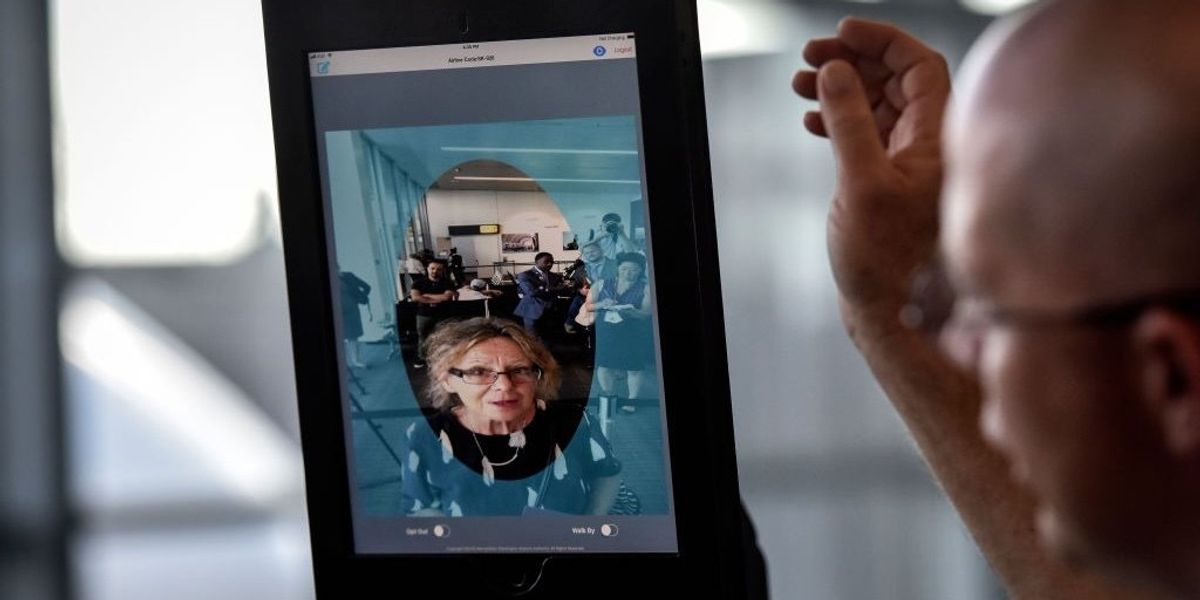

The Trump administration recently ended the Transportation Security Administration’s outdated shoe-removal rule — a long-overdue rollback of post-9/11 security theater. But at the same time, it’s resisting a bipartisan push to rein in something far more intrusive: the agency’s unregulated use of facial recognition technology at airports.
The Traveler Privacy Protection Act — co-sponsored by Sens. Jeff Merkley (D-Ore.), John Kennedy (R-La.), Ed Markey (D-Mass.), and Roger Marshall (R-Kan.) — would set limits on the TSA’s biometric surveillance program at airports.
Facial recognition checkpoints are already being piloted at major airports. TSA officials have made clear that their goal is to replace traditional IDs altogether.
Here’s what the bill does:
- Restores consent: Manual ID checks would become the default again. Passengers would have to opt in to facial recognition. The TSA would be required to notify travelers clearly that they can opt out.
- Limits retention: Most biometric data would have to be deleted within 24 hours.
- Restricts sharing: The TSA could no longer hand over biometric data to other federal agencies or private entities, except in very narrow circumstances.
The legislation follows a bipartisan letter sent in November 2023 to the Department of Homeland Security inspector general, requesting a full audit of the TSA’s biometric collection, retention, deletion, and cybersecurity protocols. The letter was co-authored by Senate Commerce Committee Chairman Ted Cruz (R-Texas).
“TSA has not provided Congress with evidence that facial recognition technology is necessary to catch fraudulent documents, decrease wait times, or stop terrorists from boarding planes,” the senators wrote.
Despite that, the TSA appears to be quietly lobbying against the bill.
When asked directly whether the TSA was fighting the legislation, Kennedy said: “The short answer is yes; the long answer is hell yes.”
Behind-the-scenes pressure
The Senate Commerce Committee had planned to mark up the bill just before the August recess. But at the last minute, the legislation was pulled from the docket.
Officially, the travel industry raised concerns. But Politico reported that behind the scenes, TSA leadership — backed by political appointees — played a central role in derailing the bill. Republican staffers familiar with the process said the agency helped coordinate opposition that ultimately killed the markup.
It’s not hard to see why TSA brass would resist oversight.
Acting TSA Administrator Ha Nguyen McNeill previously served as TSA chief of staff during part of Trump’s first term. After leaving government, she joined BigBear.ai, a company specializing in facial recognition and identity verification powered by artificial intelligence. She eventually became the firm’s president.
Now she’s back — nominated to lead the TSA for the duration of Trump’s administration.
AI, contracts, and civil liberties
Under McNeill’s leadership, the TSA has pushed to expand its use of AI-powered surveillance tools. In 2023, officials openly discussed plans to eliminate boarding passes and photo IDs altogether in favor of biometric scans.
“Imagine embarking on a journey where the seamless orchestration of technology transforms traditional security checkpoints,” said Kristin Ruiz, the TSA’s deputy chief information officer, at an AI summit last year. “AI-powered advancements signify an evolution driven by data science, analytics, and intelligent automation.”
That vision may sound efficient. But it’s also a red flag for anyone who doesn’t want American airports to become nodes in a Chinese-style surveillance state.
The TSA isn’t alone. The Department of Homeland Security has been inking massive contracts with tech companies specializing in surveillance.
Palantir Technologies, co-founded by Trump ally Peter Thiel, has landed a $1 billion contract with the DHS. The company also has similar contracts with the Department of Health and Human Services and the Pentagon, now worth a combined $10 billion.
RELATED: The One Big Beautiful Bill Act hides a big, ugly AI betrayal
 Photo by DAVID MCNEW/AFP via Getty Images
Photo by DAVID MCNEW/AFP via Getty Images
Palantir’s market cap now exceeds $400 billion — bigger than Home Depot or Coca-Cola. Since its first DHS deal was announced in April, the company’s stock price has jumped 131%.
It doesn’t need a marketing team. The federal government is its customer.
Palantir has also benefited from the revolving door.
- Gregory Barbaccia, Palantir’s former head of intelligence, now serves as the chief information officer of the federal government.
- Clark Minor, a longtime Palantir employee, now holds the same role at HHS.
- Jacob Helberg, a senior adviser to Palantir CEO Alex Karp, was appointed to lead the State Department’s economic and trade policy.
This is the ecosystem driving the TSA’s resistance to reform: private contractors, political insiders, and intelligence bureaucrats profiting from biometric surveillance — at your expense.
The stakes
Facial recognition checkpoints are already being piloted at major airports. TSA officials have made clear that their goal is to replace traditional IDs altogether. And if this bill fails, there may be no legal limit to how far the agency can go.
Congress has a choice: Protect passengers or protect the Big Tech-Big Government industrial complex.
At the very least, senators should not confirm McNeill without hard, enforceable commitments: clear opt-outs, data deletion requirements, and strict limits on sharing and retention. The federal government should not be harvesting and storing your face just so a contractor can hit its quarterly earnings target.
You don’t build a free society by handing over the keys to Big Tech and hoping the companies don’t abuse them.
.png)
 3 hours ago
2
3 hours ago
2

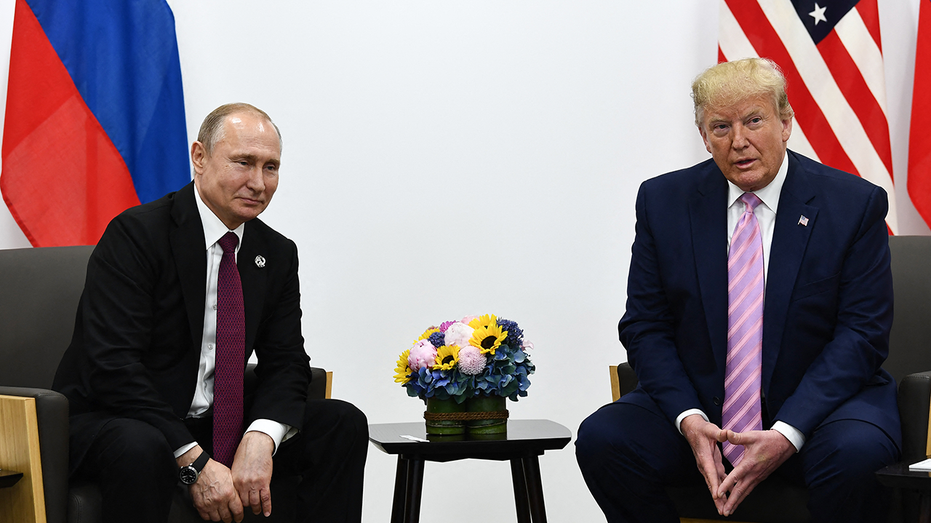
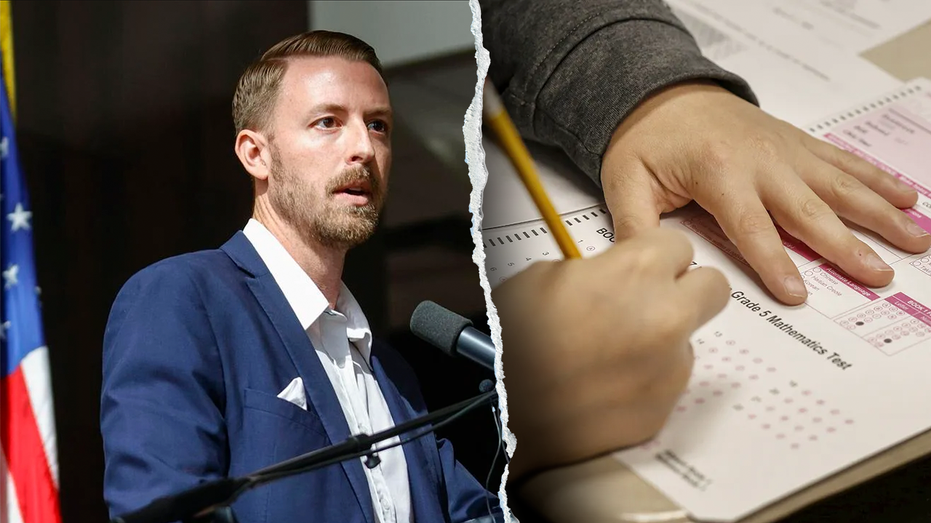

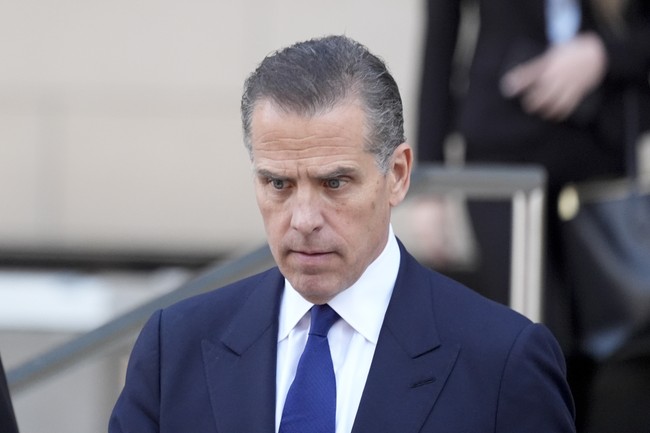
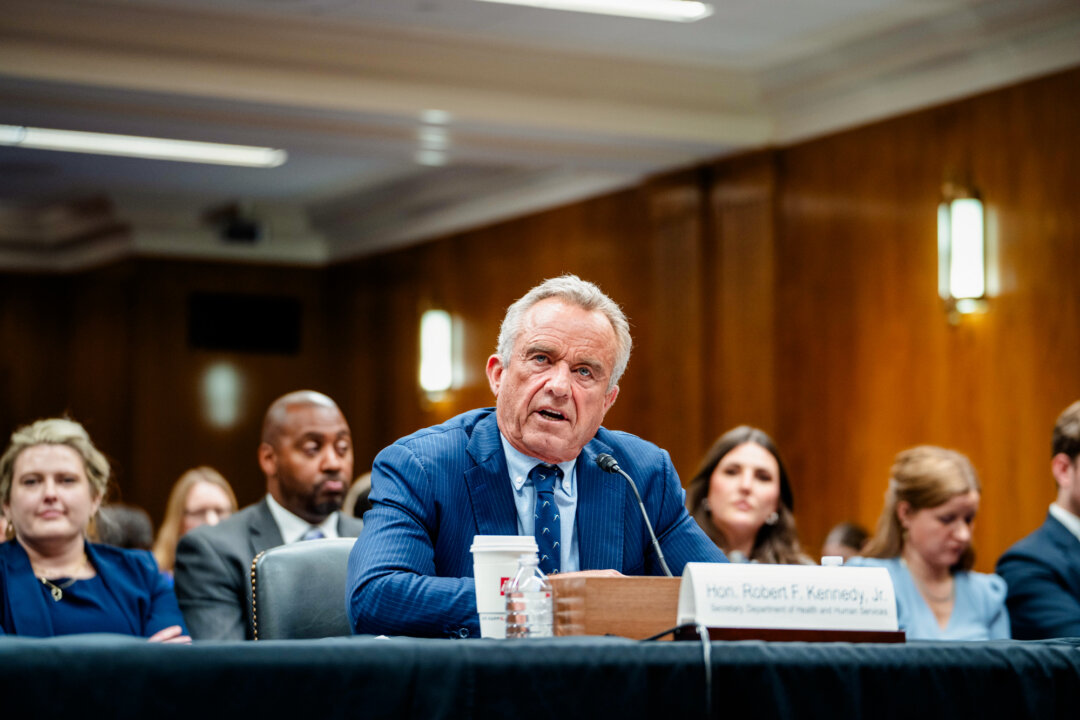


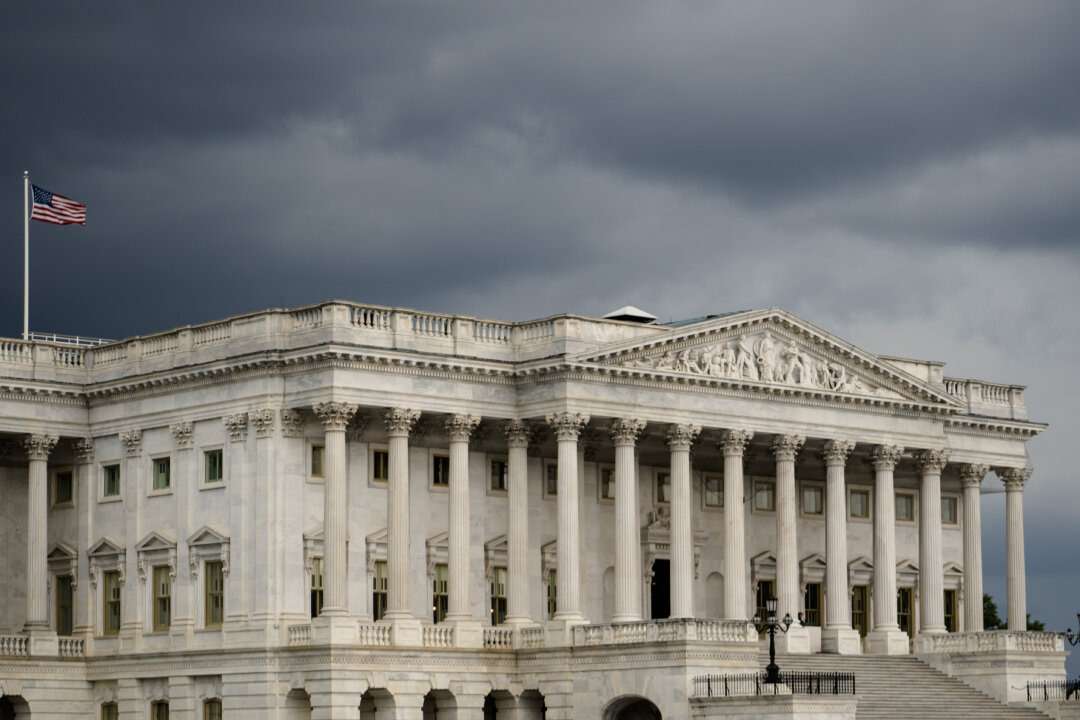

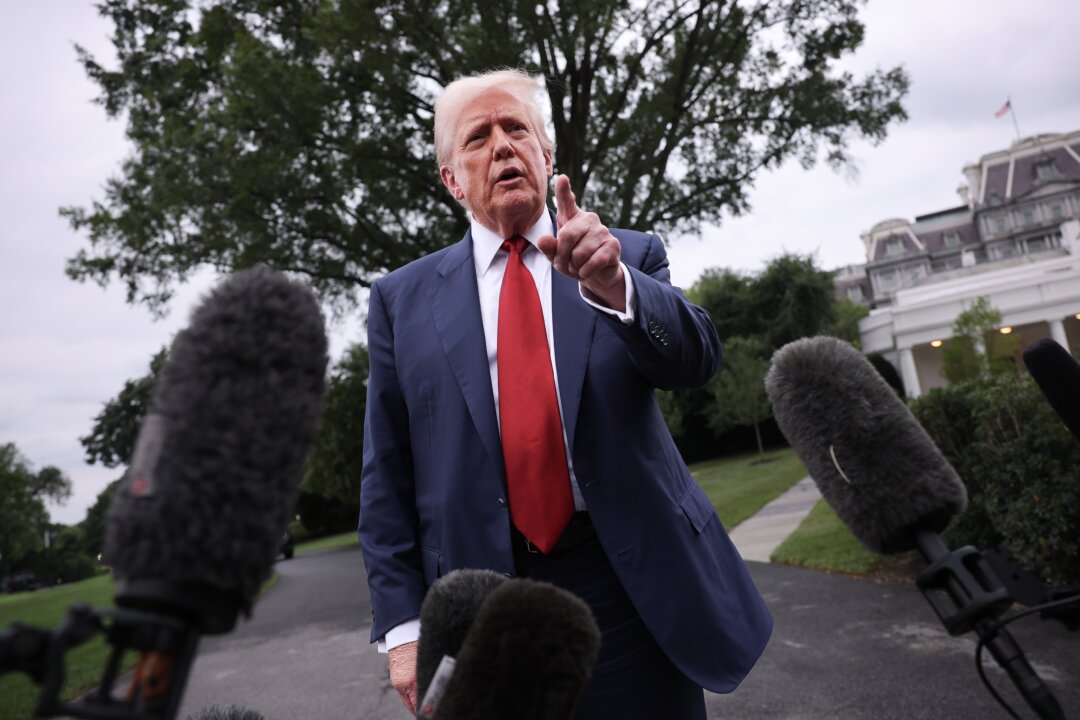




 English (US)
English (US)